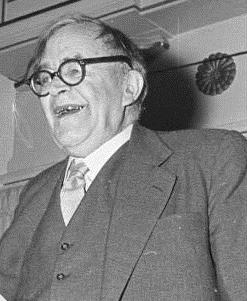
A moment’s reflection on the New Testament’s mode of reasoning should suggest that this use of “foundation” is probably some sort of rhetorical trap. Don’t the New Testament writers themselves employ the normal canons of logical necessity? And doesn’t the New Testament tacitly insist on conceptual consistency (and the consequentiality of the historical referents behind Scripture) when it holds up the actual, bodily reality of Christ’s resurrection as the sine qua non of the believer’s hope (1 Cor. 15)?[4] Any attempt to dissolve conceptual consistency would rob the force of Paul’s reasoning. Postliberals, in fact, are exalting Christ and his theological role in a way that appeals to religious sentiments, but in a way not at all in line with the New Testament. As Richard Muller explains, “We can distinguish…between the soteriological Christocentrism that belongs to any genuinely Christian body of doctrine and the principial Christocentrism that belongs to several nineteenth-century developments of the so-called ‘mediating theology’ and to Karl Barth.”[5] At any rate, a quick look at the New Testament’s use of the foundation image shows that it serves a different purpose from what postliberals seem to think.
Premium Members and Friends of JP must be signed in to view this content.
If you are not a Premium Member or Friend, please consider registering. Prices start at $5/month if paid annually, with other options for monthly and quarterly and more: Sign Up For Premium
Notes
- It is revealing that prominent North American faculties that warmly embrace postliberalism (e.g., Duke, Princeton, Yale) hire their New Testament instructors almost exclusively from North American ranks, while those that have been more resistant to this way of thinking (e.g., Harvard, Chicago) hire their senior New Testament professors almost exclusively from Europe.[↩]
- This charge is explicitly made in Stanley Hauerwas, “The Church’s One Foundation is Jesus Christ Her Lord; Or, In a World Without Foundations: All We Have is the Church,” in: Stanley Hauerwas, Nancey Murphy, and Mark Nation (eds.), Theology Without Foundations: Religious Practice and the Future of Theological Truth (Nashville: Abingdon, 1994), 143-62.[↩]
- See Joachim Jeremias, art. “γωνία, κτλ.,” Theological Dictionary of the New Testament (Grand Rapids: Eerdmans, 1964), 1:791-93.[↩]
- This is all argued clearly and forcefully in Paul J. Achtemeier, “Is the New Quest Docetic?” Theology Today 19 (1962): 355-68 (available online at http://theologytoday.ptsem.edu/oct1962/v19-3-article3.htm).[↩]
- Richard A. Muller, “The Barth Legacy: New Athanasius or Origen Redivivus? A Response to T. F. Torrance,” The Thomist 54 (1990): 673-704, esp. 685. (Note: “principial” is not misspelled.)[↩]


